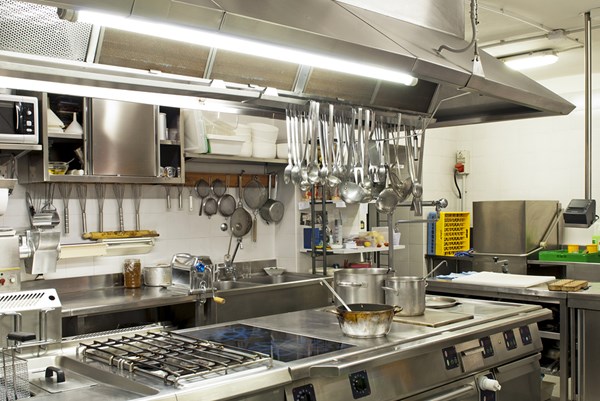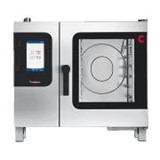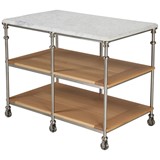From the smallest speciality cafe to the largest mass market restaurant and from the smallest catering company to the largest business cafeteria, the goal is always the same: to match equipment to output. Overextend on expensive appliances and a new kitchen will quickly creak under financial pressure. Err too far down the conservative outfitting route and your kitchen could struggle to meet demand. So how do you get the kitchen scales nicely balanced for business?
Work out your shopping list
What appliances, cooking stations and work surfaces do you need? If you've never run a commercial kitchen before and have no idea which items on your menu will be the most popular, there will be a degree of guesswork. You can however research the set ups in other similar restaurants to approximate initial requirements.
Work out your traffic flow
A busy kitchen at peak time can be like a city intersection with broken traffic lights. The less your kitchen staff cross paths or worse, crash into each other with hot dishes, the better. So organise your kitchen according to equipment use. What are your high use appliances likely to be? Oven? Stove top? Microwave? Deep fryer? Refrigerator? What work areas are likely to be busiest? Work out where the bulk of your traffic will be, where it needs to go most regularly, and how it's going to get there. Create a grid with as many smooth, uncrossed paths between high use items as you can and your kitchen will operate faster with fewer mishaps.
Bigger isn't always better
Yes, you want to make a statement, but that doesn't mean festooning your kitchen with culinary Rolls Royces. Your choices need to be based on one simple question – can it do the job inside my budget? And don't get mesmerised by the concept of an all new kitchen. If second hand equipment can do the same job at half the cost, your start up cash flow gets a major boost.
Talk to tradies
A commercial kitchen has its own unique electrical needs. So don't just plug it all in and fire it up or your first day could be a short one. An electrician can make sure all your equipment is professionally installed and that your power supply is sufficient to cope with heavy peak time loads. You should also consult a plumber to ensure your water supply is adequate for heavy duty dish washing and cleaning.
Pick brains
When embarking on a new venture, there's always the temptation to do it your way; to steer clear of advice that could dilute your 'personal touch.' The danger is that you end up repeating the mistakes of others; mistakes you won't make if you're open to counsel.





